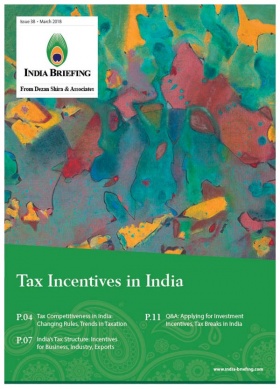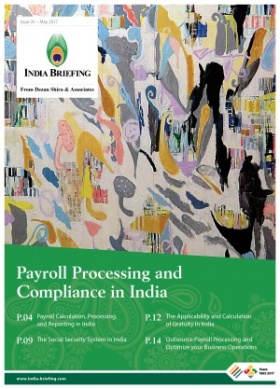Aadhaar Linking in India – Now a Mandatory Requirement
Government has made it mandatory to link Aadhaar to all banking and financial identification and documents, to avail government services. This article lists the accounts and services that must be linked to the 12-digit Aadhaar number to avoid discontinuation of services.
Indian Income Tax Returns – Filing Date Extended to November 7 for FY 2016-17
India’s federal tax body has extended the final date for filing income tax returns (ITR) and submitting reports for audit for FY 2016-17. This time around taxpayers will need to disclose their Aadhaar number, and additional banking and financial information.
The IT Sector: Time to Invest in India
In this edition of the India Briefing magazine, we make the case for why now is the right time for foreign firms to invest in India’s IT sector. India is the world’s leading outsourcing destination, and is updating its SMAC capabilities and up-skilling the existing IT labor pool.
Make in India: Still Falling Short after Three Years
Make in India was launched in 2014 by Prime Minister Modi to transform India into a manufacturing powerhouse, and boost investor interest. Here we assess what has been Make in India’s real impact on the ground – what has worked for the program and what needs to get done.
BBIN Motor Vehicle Agreement Unlocks Northeast India, Grows South Asian Business Linkages
The BBIN Motor Vehicle Agreement will help businesses across Bangladesh, India, and Nepal develop more cost and time effective supply lines and distribution channels, even as Bhutan has presently chosen to opt out of implementing the pact.
Massive Data Breaches and Cyber Threats in India
Digital India is vastly under-prepared for cyber-attacks that are becoming increasingly common. In this article, our partner, MitKat, describes India’s digital vulnerabilities and ways foreign companies can anticipate subsequent cyber-attacks.
Anti-Corruption Laws in India: Minimize Your Risk Exposure
The festive season in India involves the exchange of gifts; however, companies should note that certain exchanges may attract liability under various domestic and foreign anti-corruption statutes. This article highlights key compliance strategies for firms to minimize such risk exposure.
Reverse Charge Mechanism in the Import of Services under GST
The new Goods and Services Tax (GST) regime introduces the reverse charge mechanism (RCM) to ensure the government receives tax on supplies of goods and services by unregistered suppliers. This article briefly discusses the mechanism.


















